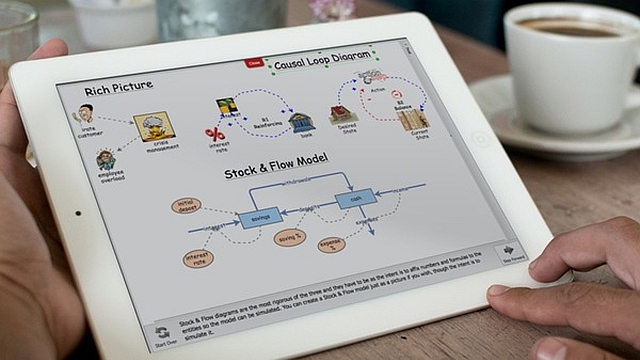
Can knowledge management become agile, and what about complexity?
The KMWorld 2015 Conference is underway in Washington from 2-5 November, and has the theme “Agile Knowledge Sharing & Innovation”.
The agile methodology is an alternative to traditional sequential project management that has to date primarily been used in software development. It involves being able to deal with unpredictability through an incremental and iterative approach.
Grant Gross reports on two of the presentations from the KMWorld 2015 opening keynote session titled “Complexity Informed Agility in Knowledge Management”.
In his keynote, Jabe Bloom, Chief Flow Officer with Praxis Flow, cautions about the challenges that agile creates in regard to the capture of institutional knowledge. He alerts that the agile development approach tends to discount the value of information resources.
Dave Snowden, Founder and Chief Scientific Officer of Cognitive Edge, advised in his keynote that complexity theory, which is the science of uncertainty, has significant implications for knowledge management. He urged a focus on more person-to-person interaction as a source of knowledge.
Source: CMSWire.






Bill Kaplan also ran a session at KM Singapore on “Applying “Agile” in Developing KM Strategies and Implementing Frameworks”. Unfortunately I can’t find the full presentation but there’s a useful Storify of the presentation that’s been put together by Nicky Hayward-Wright.
There’s definitely a trend towards the broader application of agile towards solving business problems in the last few years. It’s been a key founding principle of the way we work with clients at knowquestion. It’s a problem-solving technique rather than a scientific principle, so I don’t know if I would ever ask if something can “become” agile. It’s more whether you “use” agile approaches in your work.
This is an interesting trend.
In terms of solutions I completely agree with Dave Snowden that policies that encourage person-to-person interaction are of high value. That said, there are ways to automate the collection of information around the development process, such as working-out-loud on a tools like Yammer of Chatter that can archive some of the smaller design decisions in context without the overhead of authoring, categorisation and storage.
A few weeks back I wrote this article about Agile in KM appearing more frequently:
http://www.deltaknowledge.net/2015/09/agile-km-is-definitely-here-are-you.html
Stan Garfield weighed in on why he felt the term “Agile KM” wasn’t used so much. The link to my response and his post can be found here:
http://www.deltaknowledge.net/2015/09/what-else-can-km-can-learn-from-agile.html
It would be good to see more research on effectiveness of different solutions.